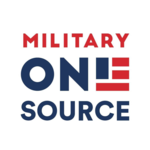Posted on Dec 9, 2019
US officials misled public about Afghanistan war, Washington Post says
436
8
3
3
3
0
Posted 5 y ago
Responses: 2

The Pentagon Papers was the name given to a top-secret Department of Defense study of U.S. political and military involvement in Vietnam from 1945 to 1967. As
(3)
(0)
From another article on this:
"Fundamental disagreements went unresolved. Some U.S. officials wanted to use the war to turn Afghanistan into a democracy. Others wanted to transform Afghan culture and elevate women’s rights. Still others wanted to reshape the regional balance of power among Pakistan, India, Iran and Russia."
https://www.msn.com/en-us/news/world/confidential-documents-reveal-us-officials-failed-to-tell-the-truth-about-the-war-in-afghanistan/ar-BBXY8l1
This is key. Despite the efforts from the very effective tactical level military advisers, it was apparent the larger strategic goal was flawed. We were teaching young, almost completely illiterate Afghans to perform very technical things. All to support a goal to build a democratic society and push western norms on them at the same time. After successfully removing Al Qaeda as a threat, we should have allied with a preferred replacement, such as the Northern Alliance, in a supporting role only. That along with assurances from them they will not condone or support terrorist factions from using their lands again to train, plan and execute operations again.
As much as I believed in what I was doing there as one of those advisers, even then I took great issue with the fact we were essentially trying to push modern US military doctrine on a force which couldn't even read. On the political end there was too much corruption and tribal infighting which we stayed away from. My hope was to at least achieve successes in building a trained, effective, and self-sustaining military, but the political decisions on our own end created hesitation and 2nd guessing from both the Afghans and those tasked to achieve the far too many goals. Keeping it simple went out the window unfortunately.
My hope is that the introduction of our own culture into many of the elements of Afghanistan will take hold and help it transform into a nation which can stand on it's own as a peaceful unified country. But they have to want it and make it happen for themselves. We can be there on the sidelines to offer help, as long as they maintain the peace. And if that peace leaves it's borders again in a similar manner to 9/11, we will return in force to remove that set of enablers.
"Fundamental disagreements went unresolved. Some U.S. officials wanted to use the war to turn Afghanistan into a democracy. Others wanted to transform Afghan culture and elevate women’s rights. Still others wanted to reshape the regional balance of power among Pakistan, India, Iran and Russia."
https://www.msn.com/en-us/news/world/confidential-documents-reveal-us-officials-failed-to-tell-the-truth-about-the-war-in-afghanistan/ar-BBXY8l1
This is key. Despite the efforts from the very effective tactical level military advisers, it was apparent the larger strategic goal was flawed. We were teaching young, almost completely illiterate Afghans to perform very technical things. All to support a goal to build a democratic society and push western norms on them at the same time. After successfully removing Al Qaeda as a threat, we should have allied with a preferred replacement, such as the Northern Alliance, in a supporting role only. That along with assurances from them they will not condone or support terrorist factions from using their lands again to train, plan and execute operations again.
As much as I believed in what I was doing there as one of those advisers, even then I took great issue with the fact we were essentially trying to push modern US military doctrine on a force which couldn't even read. On the political end there was too much corruption and tribal infighting which we stayed away from. My hope was to at least achieve successes in building a trained, effective, and self-sustaining military, but the political decisions on our own end created hesitation and 2nd guessing from both the Afghans and those tasked to achieve the far too many goals. Keeping it simple went out the window unfortunately.
My hope is that the introduction of our own culture into many of the elements of Afghanistan will take hold and help it transform into a nation which can stand on it's own as a peaceful unified country. But they have to want it and make it happen for themselves. We can be there on the sidelines to offer help, as long as they maintain the peace. And if that peace leaves it's borders again in a similar manner to 9/11, we will return in force to remove that set of enablers.
(1)
(0)
Read This Next



 Afghanistan
Afghanistan Pentagon
Pentagon



